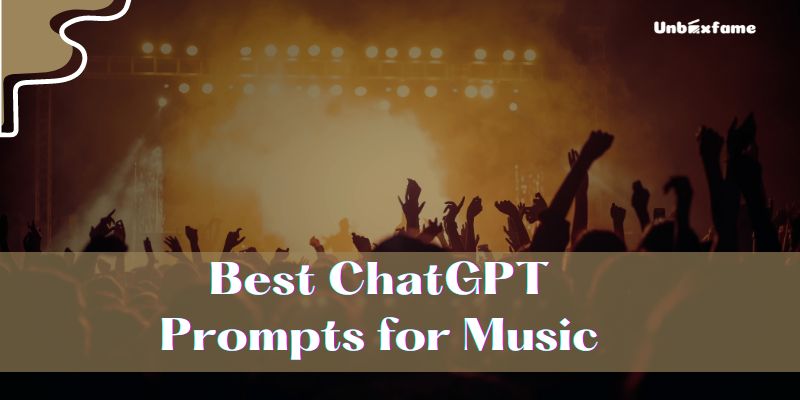Online discussion has been sparked by OpenAI’s newest chatbot, ChatGPT. Even those who have been keeping up with the most recent advancements in AI are astonished by the range and precision of ChatGPT’s text production.
3 ChatGPT Music Prompts for Generating Chords and Lyrics
MuseNet and JukeBox are only two of the music creation tools that OpenAI has previously published. These apps have so far posed more of a curiosity than a genuine risk. They failed to produce music with authentic high quality. This is partially a result of the difficulty neural networks have in constructing long-term structures like a whole song.
Users of MuseNet can export MIDI files depending on several criteria, such as genre and artist. Jukebox went a step further and began creating whole audio files that included singers, lyrics, and intricate musical arrangements.
Using ChatGPT and another free service called UberDuck, many music producer influencers began producing meme videos of well-known rappers around December 2022. This lighthearted method is meant to be amusing and parodic; it should not be used to accurately replicate the artists’ work. This is how it goes:
Users provide lyric prompts for ChatGPT, such as “write a lyrical verse about [topic] in the style of [artist].”
Plug a portion of the lyric output into UberDuck that you like.
Uberduck’s audio may be exported and imported into your DAW.
Add a melody using an autotune plugin. Try GSnap VST from GVST if you’re seeking a cost-free alternative.
The most well-liked ChatGPT music process that we have discovered is that.
ChatGPT Music Generation
Independent researchers have already begun using ChatGPT to produce text-based recommendations for how to enhance current chord progressions. Jeffrey Emanuel, a Twitter user, offered many instances.
Emanuel used the instruction to “modify the following progression to be more like Bach” and offered a text-based chord diagram. Although these outcomes may be amusing, ChatGPT’s natural language processing is not multimodal. As a result, it lacks training in music and is unable to develop objective judgments regarding aesthetic advancements.
Similar initiatives were undertaken to incorporate AI lyric creation with text-based chord charts. Although the result looked good, Twitter users who commented on Emanuel’s post complained that they had tried to sing the melodies along with the lyrics but the result sounded terrible.
Can we anticipate major advancements to AI music if ChatGPT doesn’t genuinely comprehend music or provide meaningful content? Yes, in a nutshell. I believe Spotify will lead the way in this.
Also Visit: 10 Best AI Art ChatGPT Prompts
MuseNet and Jukebox (GPT-2 & GPT-3)
You can move forward to the section on Spotify if you are already familiar with MuseNet and Jukebox. Otherwise, let’s examine two of the most effective AI melody and music generation programs available today.
Powered by a deep neural network that was trained on a sizable MIDI dataset, MuseNet was released in April 2019. The user then submits their request after choosing a set of parameters. Based on your original input, MuseNet makes an API call to their server and returns a collection of variants. It takes around a minute to complete.
MuseNet’s music is presented in a piano roll style, as shown above. The user may then start fine-tuning the MIDI file in their digital audio workstation (DAW) after downloading it.
Career musicians are therefore secure in the near term, but it is advisable that they concentrate on making friends and networking with people rather than locking themselves in a studio.
In the long run, the jobs of artists and music producers could change to supplying artificial intelligence with cues and controlling its production in order to satisfy the demands of those who want the music.
In publishing and graphic design, Lorem ipsum is a placeholder text commonly used to demonstrate the visual form of a document or a typeface without relying on meaningful content.
